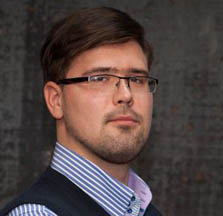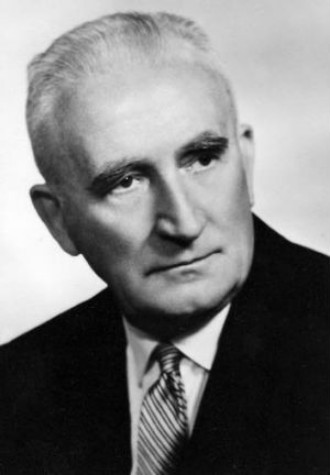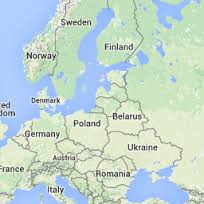Like many East European immigrants of his generation, Ivan Yuriiv arrived in Canada after World War II and made a life for himself and his family in Toronto. He died in obscurity in 1970.
If he had he lived longer, Yuriiv might not have enjoyed such a quiet and uneventful life as a new Canadian. He may have been charged with war crimes, suggests Yuri Radchenko, a young Ukrainian historian who specializes in the Holocaust in eastern Ukraine.
Radchenko, who earned a PhD in Holocaust Studies in Ukraine, is a Petro Jacyk Visiting Scholar and the Scholar in Residence at the Anne Tanenbaum Centre for Jewish Studies at the University of Toronto. Before coming to Toronto, Radchenko was a fellow at the Center for Advanced Holocaust Studies at the United States Holocaust Museum in Washington, D.C.
Yesterday, Radchenko delivered a lecture on his topic at the university’s Monk School of Global Affairs, charting the relationship between Ukrainian nationalism and the Holocaust by focusing on Yuriiv, a nationalist leader whose name is usually familiar only in academic circles.

Born in 1893, Yuriiv was one of the earliest members of the Organization of Ukrainian Nationalists (OUN), whose objective was Ukrainian statehood. OUN was founded in western Ukraine, then part of Poland, in 1929.
When OUN split into rival camps in 1940, Yuriiv and older members like him threw their support behind Andrij Melnyk’s more moderate faction. Radicals tended to back Stepan Bandera’s OUN B faction, which in June 1941 declared Ukrainian independence, and was later implicated in the mass murder of Jews. By all accounts, upwards of 900,000 Ukrainian Jews were killed during the Holocaust.

In 1940, Yuriiv moved from Lvov (Lviv) to German-occupied Poland. Due to the fact that he was an ethnic German, he was granted German citizenship, Radchenko said.
He joined a Nazi mobile killing squad, Einsatzgruppen D, commanded by Otto Ohlendorf, and played a role in the extermination of about 130,000 Jews in what is now Ukraine and Russia. In particular, Yuriiv was one of the founders of a Ukrainian police force that, in October 1941, massacred the Jewish population of the Crimean city of Mariupol, now a bone of contention between Ukraine and Russian separatists.
Yuriiv, in July 1943, was sent to Belarus, where he hunted down partisans. It’s uncertain what duties he performed from 1944 to 1945.
According to Radchenko, five different types joined the police force Yuriiv had been instrumental in establishing: Ukrainian political activists, professional careerists who had held low-and-middle level jobs in the bureaucracy of the Soviet Union, forced conformists, ordinary enforcers and criminal elements.
Yuriiv hailed from the first group. Some of these individuals collaborated with the Nazis as long as German and Ukrainian national interests meshed. Still others were collaborators until the war ended.
Following Germany’s defeat in 1945, Yuriiv relocated to Bavaria, in western Germany. For a while, he lived in a DP camp in Augsburg. Among its inhabitants were Ukrainians loyal to Bandera and Jews.
In November 1951, with the Cold War heating up, Yuriiv was admitted to Canada along with his wife and daughter. He claimed he had been an accountant in wartime Ukraine. He found a job in a factory and was active in Toronto’s large Ukrainian community.
He died before the Canadian government began investigating war criminals who had immigrated to Canada without having divulged all the details of their past. Had he lived longer, Radchenko observed, Yuriiv might well have become a convicted war criminal.
He was the Nazi collaborator who got away.
